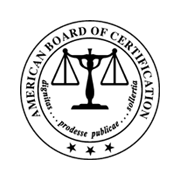
506 N. Armenia Ave. Tampa FL 33609 | 813-870-3100
Preferences:
Two issues too often catch debtors who were not adequately counselled before filing. Preferences and fraudulent transfers. A preference is when a debtor 'prefers' one creditor to others before filing. This means the debtor pays the creditor a portion of a debt that is legitimately owed prior to filing, and that enables the creditor to receive more than it would have received in the bankruptcy on that portion of the debt that was paid. For a typical creditor, such as a credit card, the court can look at payments made within 90 days of the bankruptcy. For 'insiders', ie relatives or business partners, or someone with a special relationship with the debtor, the court can look at payments within 1 year of the bankruptcy under the bankruptcy law.
The amount of funds or property transferred to the creditor also must be at least $600 (for most debtors, much more for debtors where most of their debts are not consumer debts). Preferences would not generally apply to debts secured by cars or mortgages. Also, in order to be something the trustee could avoid, the transfer must have been made while the debtor was insolvent – ie that the debtor's debts at the time of the transfer is greater than the net value of the debtor's assets (excluding exempt assets, see the notes on exemption in another post). While this would normally be the case for payments within 90 days of the bankruptcy (but not always) it is something that would need to be examined much more closely for payments to relatives within 1 year of the bankruptcy.
If there is an ongoing relationship of borrowing and repaying between the debtor and the creditor, the analysis is more complicated. The court then looks at the net amount repaid less amounts lent back to the debtor. For instance, if the debtor borrows $1,500 from his father 6 months before the bankruptcy is filed, then repays his father $1000, the amount of the preference would be $1,000. However, if the father were to lend another $600 to the debtor prior to filing the net preference would be $400, an amount low enough that the trustee could not seek reimbursement from the father.
There are other circumstances in which the trustee cannot get back the preference, such as when there is a contemporaneous transfer, or payments made in the ordinary course of business. A detailed analysis by counsel would be warranted to determine if these may apply.
If the conditions for a preference are satisfied, the trustee (the person appointment to administer the bankruptcy when the case is filed) can get back the amount transferred to the creditor. In chapter 13 while the trustee generally would not get back any of the funds, the amount that needs to be paid to unsecured creditors in the plan may need to be increased by the amount of any preference.
Michael Barnett, Esq.
Michael Barnett, PA
506 N Armenia Ave.
Tampa, FL 33609-1703
813-879-3100
Over 25 Years in Florida

Michael Barnett has provided his services in and around Tampa, Florida covering Hillsborough, Pasco and Polk County for over 20 years.
Board Certified

Mr. Barnett is board certified by the American Board of Certification in consumer bankruptcy law, and has been board certified since January 1993.
BBB Accredited

The BBB has determined that this business meets accreditation standards.